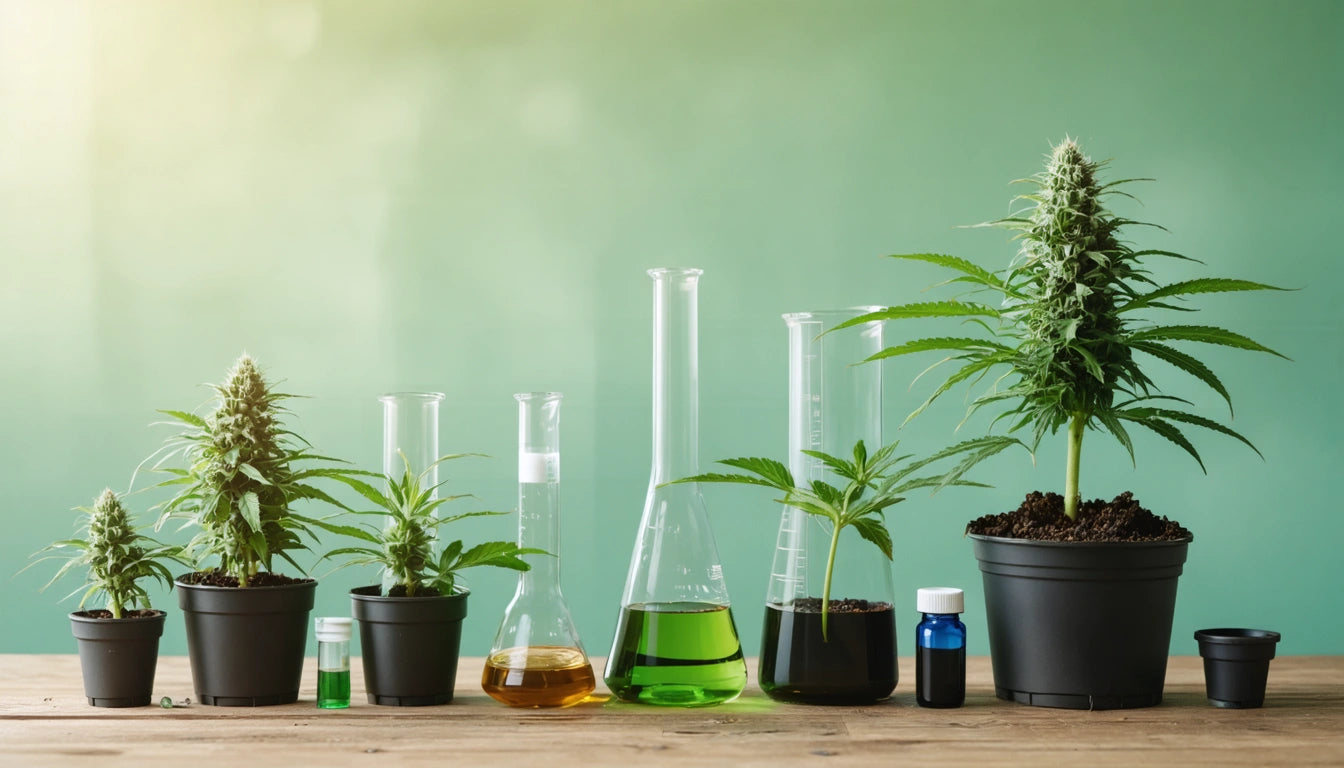Table of Contents
How Long Does Pot Stay in Your System for a Drug Test?
Understanding how long pot stays in your system for a drug test is crucial for anyone subject to workplace, legal, or athletic screening. Cannabis detection times vary significantly based on multiple factors, including frequency of use, metabolism, and the specific testing method employed. This comprehensive guide breaks down what you need to know about cannabis detection windows and the variables that influence them.
Detection Windows for Cannabis in Drug Tests
Cannabis can remain detectable in your system long after its effects have worn off. The primary psychoactive compound in cannabis, THC, is fat-soluble, meaning it binds to fat molecules in the body, potentially extending detection periods compared to water-soluble substances.
According to research on cannabis detection windows, the general timeframes for different user types are:
- Single use: 3-4 days
- Moderate use (4 times/week): 5-7 days
- Daily use: 10-15 days
- Heavy, chronic use: 30+ days
These timeframes apply primarily to urine tests, which are the most common screening method. Other testing methods have different detection windows, which we'll explore later in this article.
Factors Affecting How Long Pot Stays in Your System
Metabolism and Body Composition
Individual metabolic rates significantly impact how quickly cannabis is processed and eliminated. People with faster metabolisms typically clear THC more quickly than those with slower metabolic rates. Additionally, since THC is stored in fat cells, body composition plays a crucial role:
- Higher body fat percentage may lead to longer detection times
- Lower body fat percentage may result in faster elimination
- Regular exercise can both help and hinder, depending on timing
Potency and Strain Considerations
The potency of the cannabis consumed directly affects how long it remains detectable. Higher THC concentrations result in more metabolites and potentially longer detection periods. Studies on marijuana detection times indicate that modern cannabis strains with higher THC content may extend the standard detection windows by several days.
Different Drug Testing Methods and Their Detection Periods
Various testing methods have different sensitivity levels and detection windows for cannabis:
Urine Testing
Urine tests are the most common screening method and detect THC-COOH, a non-psychoactive metabolite of THC. As detailed in this analysis of marijuana detection in urine, detection times vary based on use frequency:
- Single use: 3-4 days
- Moderate use: 5-7 days
- Daily use: 10-15 days
- Heavy chronic use: 30+ days, sometimes up to 90 days
Blood Testing
Blood tests detect active THC rather than metabolites, offering a shorter detection window:
- Single use: 1-2 days
- Regular use: Up to 7 days
Blood tests are more commonly used in situations requiring determination of active impairment, such as driving under the influence cases.
Saliva Testing
Oral fluid tests typically detect cannabis use within the past 24-72 hours, making them useful for identifying recent consumption but less effective for establishing patterns of use.
Hair Testing
Hair follicle tests have the longest detection window, potentially identifying cannabis use for up to 90 days or even longer. However, they cannot pinpoint when within that period consumption occurred.
While drug testing protocols continue to evolve, it's worth noting that safety standards in other areas have been refined over decades. For instance, safety regulations for product packaging have been developed to protect vulnerable populations, similar to how drug testing protocols aim to maintain safety in sensitive workplaces.
How Consumption Frequency Impacts Detection Time
The relationship between consumption patterns and detection windows is well-established. Research on cannabis detection in urine tests shows that frequency of use is perhaps the single most significant factor in determining how long pot will remain detectable:
Occasional Users
For those who consume cannabis once a week or less, THC metabolites typically clear from the system relatively quickly:
- First-time users: 3-4 days
- Weekend-only users: 5-7 days
Regular Users
People who consume cannabis several times per week build up higher concentrations of THC metabolites:
- 3-4 times weekly: 7-10 days
- 5-6 times weekly: 10-15 days
Daily and Heavy Users
For daily consumers and those who use multiple times per day, THC and its metabolites accumulate significantly in fat stores:
- Daily, single session: 15-30 days
- Multiple daily sessions: 30-90 days
The cumulative effect of regular consumption means that even short breaks may not be sufficient to clear THC from the system before a scheduled drug test.
Strategies for Faster Elimination from Your System
While no method guarantees accelerated elimination of cannabis metabolites, certain approaches may support the body's natural detoxification processes:
Hydration and Dietary Considerations
Proper hydration supports kidney function and may help dilute urine concentration, though excessive water intake immediately before a test can flag samples as diluted. Additionally, a diet rich in fiber can help with elimination through the digestive system.
Exercise Timing
Regular exercise may help burn fat where THC is stored, potentially accelerating elimination. However, studies on drug test preparation indicate that exercise should be avoided in the 24 hours before a test, as fat burning can temporarily increase THC concentration in the bloodstream.
Abstinence Period Planning
The most reliable approach is planning an adequate abstinence period based on your consumption patterns:
- Occasional users: 1-2 weeks abstinence
- Regular users: 2-4 weeks abstinence
- Heavy users: 1-3 months abstinence
Understanding your specific risk factors and the type of test you'll face allows for more accurate planning of abstinence periods.
For those concerned about upcoming drug tests, the most reliable approach remains abstaining from cannabis for a period appropriate to your consumption pattern and the test type you'll encounter. While various detoxification products exist on the market, scientific evidence supporting their efficacy remains limited.











Leave a comment
All comments are moderated before being published.
This site is protected by hCaptcha and the hCaptcha Privacy Policy and Terms of Service apply.